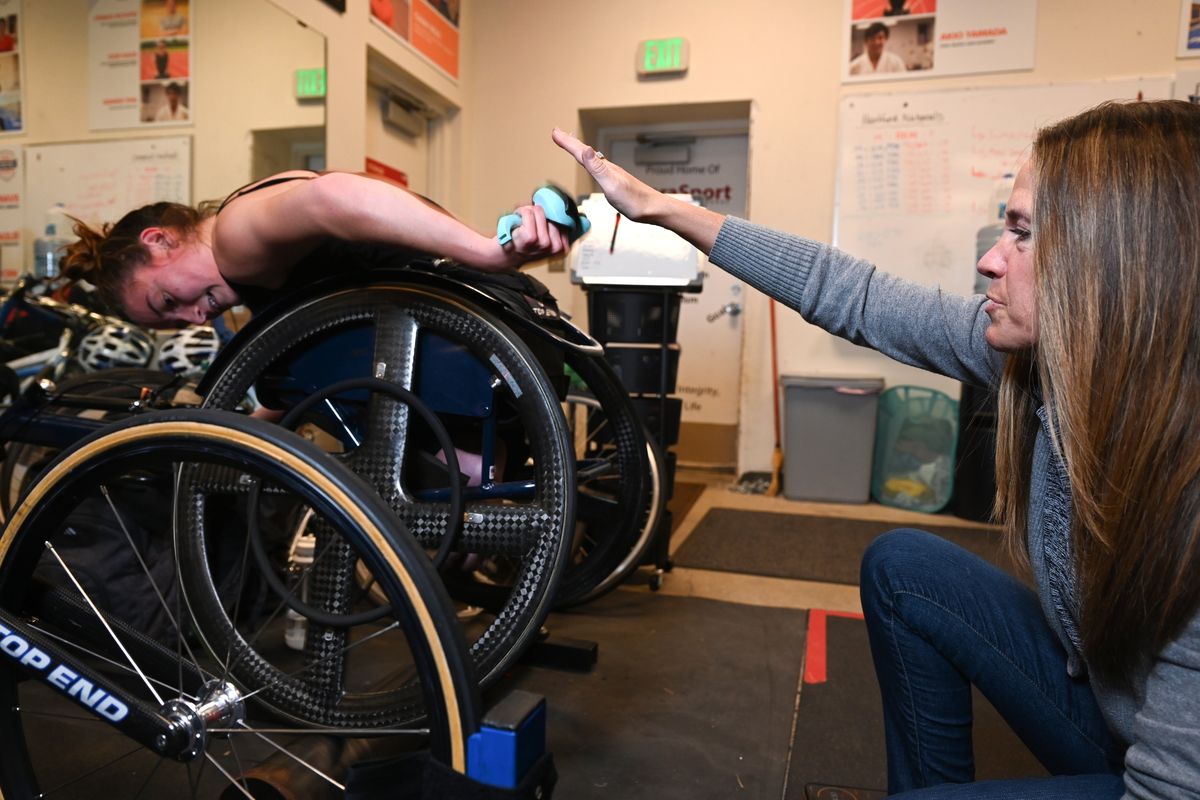ParaSport Spokane races against August deadline to find new facility for athletes with disabilities

ParaSport Spokane is scrambling to find another training facility for about 200 athletes by August, when the clock runs out on a lease at Valley Christian School.
Principal Derick Tabish said in an email that because of its growth in enrollment and sports programs, the school needs the gym and track spaces that have been rented by the adaptive sports organization for the past seven years. He said ParaSport Spokane received notice in late 2023.
ParaSport leaders have scouted various Spokane facilities since February, and they’re still in talks with a few, but the group has yet to secure a new home, executive director Teresa Skinner said.
“We still don’t have a place to move, but I believe in Spokane,” Skinner said on Wednesday, while traveling with athletes in a competition.
“We’ve had some really great talks with Whitworth, and with Spokane Public Schools, Mead, East Valley and West Valley. I think this whole community is trying to figure out a way to support and make this program continue. It’s just a matter of figuring out the details.”
She said Whitworth University offers the most space for a goal to keep the group’s many sports in one place, although storage would be limited.
As an occupational therapist, Skinner founded ParaSport Spokane in 2013. With volunteers, the group runs multiple sports programs for disabled athletes, from toddlers to adults. Offerings include wheelchair basketball, track and field, strength and conditioning, swimming, sled hockey and parafencing.
The program has trained more than a dozen Paralympians. Many of its athletes also participate in Bloomsday and Hoopfest.
Summer is a heavy travel time. ParaSport Spokane just took 12 athletes to the Hartford Nationals in Alabama, an event operated by the U.S. adaptive sports organization Move United. The Spokane program had 11 people heading to the Paralympic Trials this weekend.
Tabish said Valley Christian has had a good relationship with ParaSport Spokane, and some of the school’s students have been in its programs. He said the adaptive sports group rented the school’s large gym and had free use of a practice gym along with its outdoor track field.
When Valley Christian purchased the former University High School site in 2017, the school had enough students to use only three of seven building wings, Tabish added.
“To help fill our unused spaces and help with expenses, we built community partnerships with multiple organizations to rent portions of our facility.”
In the past three years, the school has grown to more than 600 students and has a number of sports at every level, including for elementary. Its classes and programs fill each wing on campus, so that required, “gradually parting ways with some of our renters,” he said.
“We are still happy to give them (ParaSport) some track usage in the future if it works in conjunction with our program needs,” he wrote in the email. “However, the large full-time room they rent and gym time that they have been using is needed for our programs in the coming year.”
Skinner is hoping to relocate all its parasports to one site.
“We believe part of what makes ParaSport Spokane successful is we’ve created very much of a family atmosphere, and all the different sports are connected in one core location,” she said. “I don’t know if that’s going to be feasible at this point, but if we can keep as much of the program together, that would be great.”
If Whitworth pans out, the group would have to store some items offsite. “We can probably adapt and figure it out; that’s one thing we’re really good at – adapt and figure it out,” Skinner said.
David Greig, ParaSport Spokane development director and a coach, said the group’s ideal facility would have enough of that storage, gym access and a nearby track.
“We have talked to most school districts, and to Whitworth,” he said. “We’ve talked to a number of gyms in the city and to the city itself.
“We need a standard middle school-sized basketball court, ideally with storage nearby so we can store our basketball competition wheelchairs.”
The group considered a former East Valley middle school in the East Farms area, but leaders decided the site was too far of a commute for most of its athletes and volunteers. If they find a Spokane facility, any storage using trailers wouldn’t work today because of the amount of equipment, and risks of weather damage or theft, he said.
“We first worked out of two 12-foot trailers,” Greig said. “We’d pack everything in and out every practice.
“Now, we have five basketball teams and six programs, so it’s hard to do that again.”